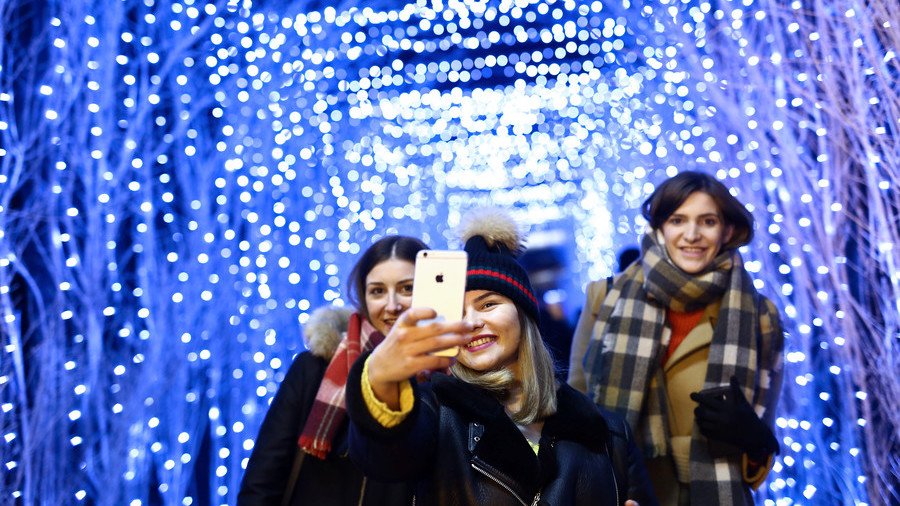A selfie a day keeps the doctor away, 3 or more and you could have a serious health problem

Is taking too many selfies bad for your health? Psychologists seem to think so, warning that ‘selfitis’ has become a genuine medical condition and those who feel compelled to post pics may be in need of help.
The term ‘selfitis,’ the obsessive taking of selfies, was originally coined in a fake-news story in 2014; but inspired an actual study conducted by psychologists Dr Janarthanan Balakrishnan and Dr Mark D. Griffiths from Nottingham Trent University.
The study explores the concept of selfitis, collecting data from 625 real university students to test out the supposed condition. The study broke down the condition into three described levels - borderline, acute, and chronic - and developed the Selfitis Behavior Scale.
‘Borderline’ cases are defined as people who take selfies three times a day (at a minimum), but do not post them on social media. ‘Acute’ sufferers actually post the selfies they take, and those suffering in the ‘chronic’ phase of the condition feel compelled to take selfies round the clock and post pictures online more than six times a day.
Balakrishnan said the research was conducted to help understand why people develop the obsessive tendency. “Typically, those with the condition suffer from a lack of self-confidence and are seeking to ‘fit in’ with those around them, and may display symptoms similar to other potentially addictive behaviors,” he said.
“Now that the existence of the condition appears to have been confirmed, it is hoped that further research will be carried out to understand more about how and why people develop this potentially obsessive behavior, and what can be done to help people who are the most affected.”
Professor of Psychological Medicine at King’s College London Sir Simon Wessely has poo-pooed the study, however, calling the research paper itself an “academic selfie.”
“The research suggests that people take selfies to improve their mood, draw attention to themselves, increase their self-confidence and connect with their environment,” he said.
Spokesman for the Royal College of Psychiatrists Dr Mark Salter echoed Wessely's skepticism.
"There is a tendency to try and label a whole range of complicated and complex human behaviors with a single word,” he said. “But that is dangerous because it can give something reality where it really has none.”
New technologically based mental-health disorders seem to be on the rise. ‘Nomophobia’ has popped up, which is the fear of not being near a mobile phone. ‘Technoference’ is now the name for the constant intrusion of technology in everyday life, and ‘cyberchondria’ is the compulsion of googling symptoms instead of visiting a doctor.
The Selfitis Behaviour Scale
Using the statements below, rate them 1 to 5, where 5 is strongly agree, and 1 is strongly disagree.
The higher the score, the greater likelihood of selfitis.
1. Taking selfies gives me a good feeling to better enjoy my environment
2. Sharing my selfies creates healthy competition with my friends and colleagues
3. I gain enormous attention by sharing my selfies on social media
4. I am able to reduce my stress level by taking selfies
5. I feel confident when I take a selfie
6. I gain more acceptance among my peer group when I take selfie and share it on social
media
7. I am able to express myself more in my environment through selfies
8. Taking different selfie poses helps increase my social status
9. I feel more popular when I post my selfies on social media
10. Taking more selfies improves my mood and makes me feel happy
11. I become more positive about myself when I take selfies
12. I become a strong member of my peer group through selfie postings
13. Taking selfies provides better memories about the occasion and the experience
14. I post frequent selfies to get more ‘likes’ and comments on social media
15. By posting selfies, I expect my friends to appraise me
16. Taking selfies instantly modifies my mood
17. I take more selfies and look at them privately to increase my confidence
18. When I don’t take selfies, I feel detached from my peer group
19. I take selfies as trophies for future memories
20. I use photo editing tools to enhance my selfie to look better than others
















